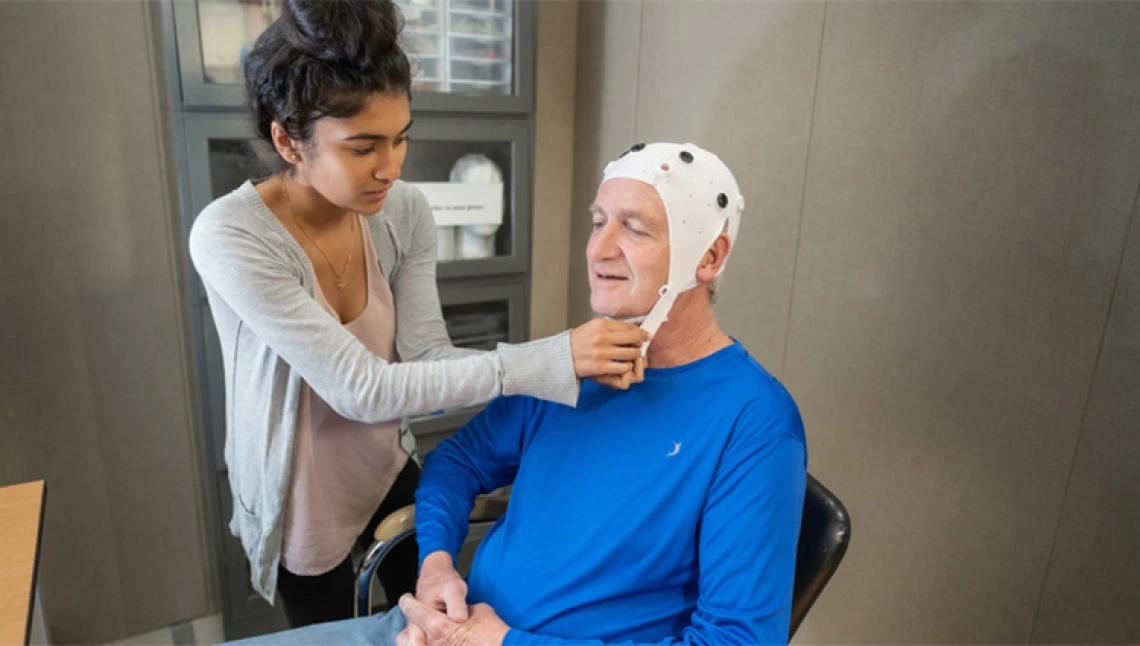Could Near-Infrared Light Give Aging Brains a Boost?

A team of researchers from the University of Arizona and University of Florida, including biomedical engineering professor Ted Trouard, are investigating whether near-infrared light could help enhance cognition and reduce Alzheimer's disease risk in older adults.
With the support of a new $3.8 million grant from the National Institute on Aging – $1.8 million of which will go to the University of Arizona – researchers will expose study participants, who range in age from 65 to 89, to near-infrared light via caps placed on participants' heads and intranasal devices inserted in the nose.
"One the initiatives in the University of Arizona's strategic plan is to close the gap that exists between the cognitive health span and the human life span," said University of Arizona President Robert C. Robbins. "As people live longer, we want to make sure they also are living healthier and more meaningful lives. This research collaboration is an important piece of our ongoing work to better understand how to combat age-related cognitive decline and Alzheimer's disease, which affects millions of people all over the world."
